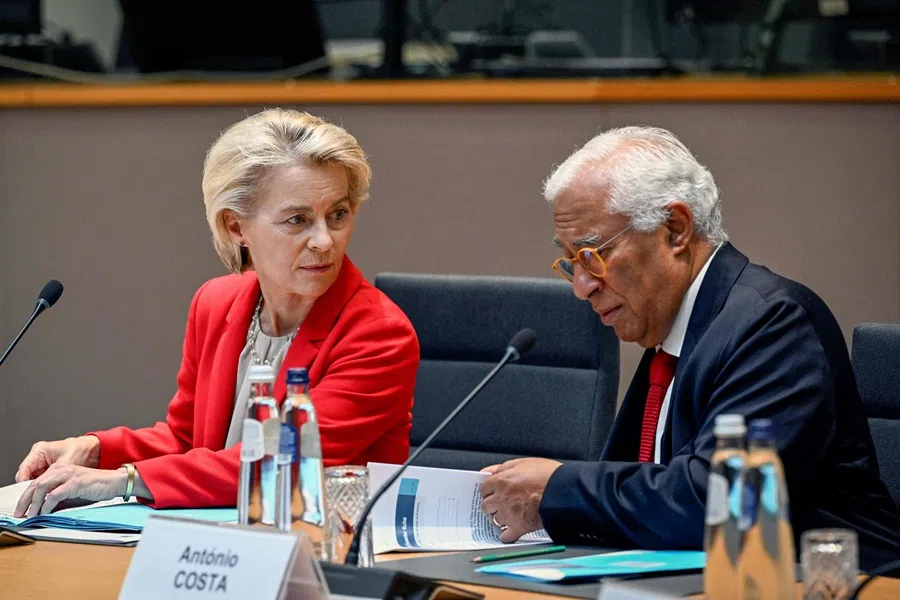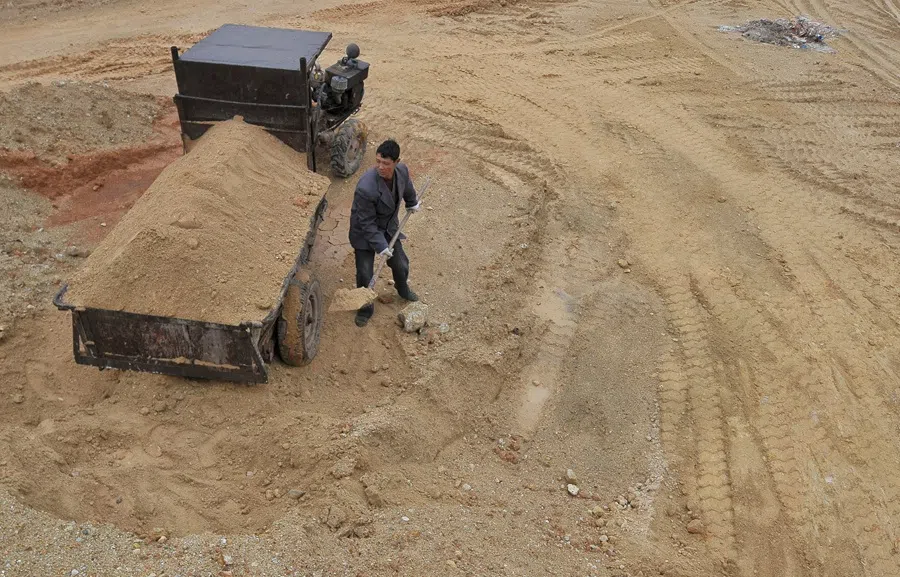EU-China summit: 50 years of ties, but little to celebrate
While contradictory signals from both sides have made expectations for progress on EU-China relations less straightforward, hopes for a breakthrough at the EU-China summit in Beijing are more than likely to be dashed, says academic Alessandro Albana.

On 24 July, Beijing will host the EU-China summit, a much-awaited meeting marking the 50th anniversary of the establishment of relations. The atmosphere surrounding the summit, however, is far from joyful.
EU-China dialogue has unravelled over the years, with increasing frictions spanning the whole spectrum of diplomatic relations — from political understanding, trade and economic exchange, to international security. Against this backdrop, while disagreements on economic issues have always hindered mutual understanding, diplomacy and political unease have gained prominence, further challenging EU-China ties.
... in recent months, contradictory signals from both sides have made expectations less straightforward.
Low expectations
The Covid-19 shocks and Donald Trump’s re-election to the White House did nothing but accelerate the process. Under such circumstances, it is hardly surprising that Beijing and Brussels are approaching this year’s summit with few — if any — reasons to hope for a smooth discussion and expect positive outcomes.
Interestingly, in recent months, contradictory signals from both sides have made expectations less straightforward. In February this year, amid the early salvos of Trump’s trade war against China and Europe, European Commission President Ursula von der Leyen declared at the EU Ambassadors Conference that the “room to engage constructively with China” still represented a viable option.
More recently, Chinese Foreign Minister Wang Yi assured Europe that Beijing has no intention to weaponise the export of rare earth elements vis-à-vis Brussels, as long as the EU complies with proper application procedures. Such declarations signal that the door of EU-China relations is still open for improvement, even though the room for positive developments seems to have narrowed.

The EU-China summit was moved from Brussels to Beijing, apparently after China’s President Xi Jinping declined the invitation to attend the event. And it was only this week that China’s Ministry of Foreign Affairs formally confirmed that von der Leyen and President of the European Council António Costa will meet Chinese President Xi Jinping during the visit. Ceremonial considerations aside, the facts speak volumes about China’s dissatisfaction regarding its relationship with the EU.
Beijing approved restrictions on its export last year, introducing further limitations last April. As a result, rare earth elements shipments to the EU fell sharply, igniting open criticism from Brussels.
In June, Beijing announced restrictions on the purchase of medical devices produced in the EU. The move, whose economic impact on Brussels would amount to 5.3 million euros, was made in response to an earlier decision by the EU to exclude Chinese companies from EU government purchases of medical devices exceeding 5 million euros. Reportedly, this was the first time the EU resorted to the International Procurement Instrument (IPI), a regulation aimed at promoting “reciprocity in access to international public procurement markets”.
Rare earths a prickly issue
Morever, despite Wang Yi’s declarations regarding China’s resolve not to halt or limit the export of rare earth elements to the EU, as mentioned earlier, the issue significantly complicates bilateral relations and Brussels’ perspective over Beijing.
In fact, the EU — as much as the rest of the world — is heavily dependent on China for the supply of rare earth minerals. Beijing approved restrictions on its export last year, introducing further limitations last April. As a result, rare earth elements shipments to the EU fell sharply, igniting open criticism from Brussels. In June, during the G7 summit in Canada, von der Leyen accused China of taking advantage of its monopoly over rare earths and turning it into a means of “coercion”.
These are but only a few of the factors that challenge the relationship between China and the EU. The background of controversies appears far larger and involves economic processes, such as the export of Chinese electric vehicles to the EU markets, as well as political and security misalignments, exacerbated by Brussels’ rearmament ambitions and its criticism toward Beijing’s alleged support of Moscow’s war against Ukraine.
The EU seems far from taking into account any serious commitment to drafting a new course in its China policy, as it did not provide any substantial signs in the direction of a more positive dialogue — let alone cooperation — with Beijing.

Only a few weeks ago, against the backdrop of mutual frustration and unease, I observed that there were rare and weak — and yet not insignificant — traces of opportunity for Beijing and Brussels to provide bilateral relations a chance for improvement, amid the wreckage of what was left of the international order.
Today, I am partially reconsidering my argument: even if reasons for convergence — slow and complicated, but that is how diplomacy works — do exist and are not yet extinct, it must be acknowledged that they will unlikely occur given such circumstances.
The EU seems far from taking into account any serious commitment to drafting a new course in its China policy, as it did not provide any substantial signs in the direction of a more positive dialogue — let alone cooperation — with Beijing.
In China’s eyes this appears increasingly clear, as demonstrated by its apparent declining consideration of the relationship with the EU.
During the past few days, the headlines of Chinese official media rarely featured news on the summit.
Difficult way forward
During the past few days, the headlines of Chinese official media rarely featured news on the summit. Chinese authorities seem to recognise that the opportunities to make a new start in the dialogue with the EU are fading. Ironically, as currently EU countries emerge as the target of Trump’s tariffs more than China did, times would be ripe for increasing convergence, and especially for Brussels to try to seek common ground with Beijing on a number of issues.
The mission is far from impossible and unprecedented, as even a critical issue as environmental protection brought the two close in the past and continue to provide a chance for cooperation even now. In sum, opportunities for dialogue are not missing, but political will — whether intentionally or not — is overlooked.
As per usual in the past decade, the picture of EU-China relations features contradictions and conflicting elements. However, in the year of their 50th anniversary, there seems to be very few reasons for celebration.



![[Video] George Yeo: America’s deep pain — and why China won’t colonise](https://cassette.sphdigital.com.sg/image/thinkchina/15083e45d96c12390bdea6af2daf19fd9fcd875aa44a0f92796f34e3dad561cc)
![[Big read] When the Arctic opens, what happens to Singapore?](https://cassette.sphdigital.com.sg/image/thinkchina/da65edebca34645c711c55e83e9877109b3c53847ebb1305573974651df1d13a)
